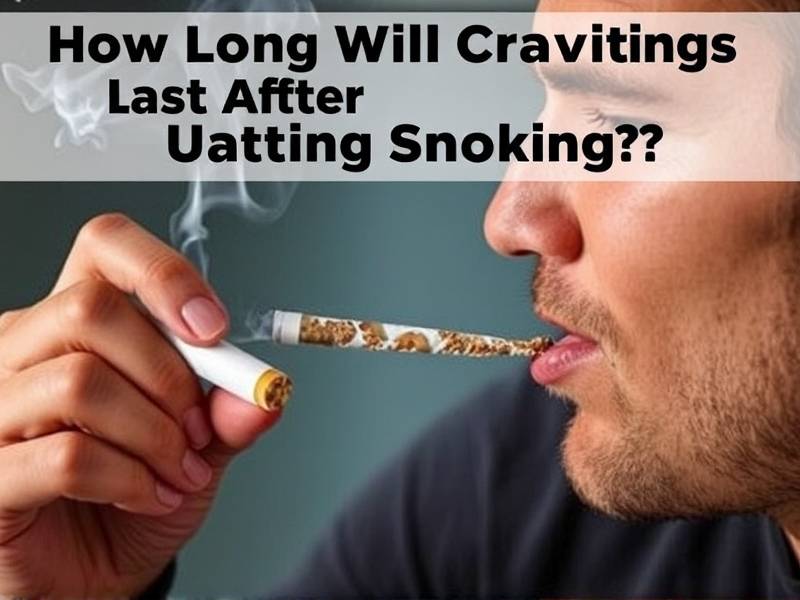How Long Will Cravings Last After Quitting Smoking?
Understanding the Duration of Nicotine Cravings Post-Quit
Introduction
The journey to quitting smoking can be challenging, with one of the most formidable hurdles being nicotine cravings. Many smokers wonder: how long will these cravings last after they quit? This article delves into the science behind nicotine cravings and provides insights into what you can expect during your quit journey.
The Science of Nicotine Cravings
Nicotine is an addictive substance that affects the brain's reward system. When you smoke, nicotine quickly enters your bloodstream and binds to nicotine receptors in your brain, triggering a release of dopamine—a feel-good neurotransmitter. This immediate gratification creates a cycle that makes it difficult to quit smoking.

After quitting, your body will begin to adjust and clear out nicotine. However, the question remains: how long will these cravings persist?

Duration of Nicotine Cravings
Research suggests that while cravings may be intense initially, they typically decrease over time. Here's a breakdown of what you can expect:
Immediate Quitting Phase (First 48 Hours)
Within the first 48 hours after quitting, you may experience intense withdrawal symptoms and cravings. This phase is crucial for maintaining motivation and support systems.
First Week
During the first week post-quit, you may still experience strong cravings. It's essential to remind yourself that this phase is temporary and that your body is adjusting to its new state without nicotine.
First Month
After about a month, many smokers report a significant reduction in cravings. Your body continues to heal from years of smoking damage, and your mind begins to adjust to life without cigarettes.
First Year
Within a year after quitting, most individuals find their cravings have significantly diminished or disappeared altogether. The brain's reward system starts functioning normally again without the need for nicotine.
Coping with Cravings
Dealing with nicotine cravings is essential for successful quitting. Here are some tips:
- Stay Hydrated: Drinking water can help alleviate withdrawal symptoms.
- Keep Busy: Engage in activities that keep your mind off smoking.
- Seek Support: Lean on friends, family, or support groups for encouragement.
- Reward Yourself: Set milestones and treat yourself when you reach them.
- Consider Medication: Talk to your doctor about prescription medications or over-the-counter aids that may help manage withdrawal symptoms.
Conclusion
Understanding the duration of nicotine cravings post-quitting smoking can provide hope and motivation for those looking to kick the habit. While it may seem daunting at first, with time and support, most individuals find their cravings diminish significantly or disappear entirely. Remember that every step towards quitting is progress—congratulate yourself on each milestone along the way!
